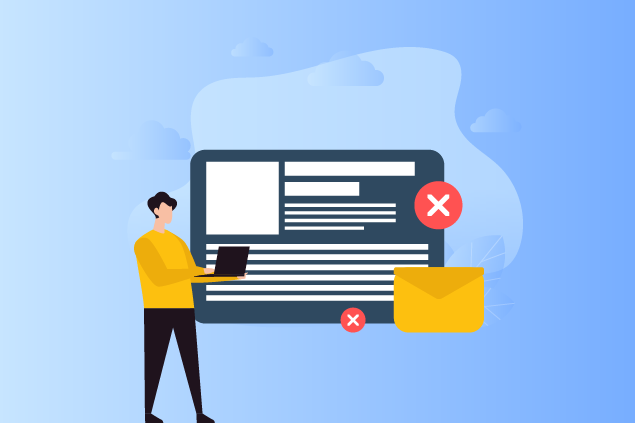It’s hard to believe that we are already a month into the year, but there is still a lot of 2019 to go – plenty of time for your law practice to benefit from the ever-changing developments in legal technology. While some of these advancements are improvements on legal technologies you already use, others are brand new innovations with unlimited possibilities for the future of legal practice. Here are some of the top ways that legal technologies will guide the way through 2019.
Blockchain innovations
The “chains” of digital information are expected to take the legal profession by storm. Not only will lawyers come in contact with the legal technology through their practice in industries like finance, real estate, and energy – they will also see blockchain begin to impact some of their everyday tasks and how they get done. For example:
- Self-executing contracts allow for contract data to be stored and supervised on a network of blockchain computers, making negotiations, contract changes, and term enforcement quicker and more efficient.
- Blockchain will also revolutionize process service through the use of digital tags that can track all physical and online movement of a document.
- This same tracking legal technology will also help with establishing the chain of custody, allowing for the effective tracking of stored documents free from concerns about tampering or deletions.
Blockchain has already made its way into various professional industries, and now it’s making a mark among law firms and other legal professionals. Attorneys who get on board now can take full advantage of this valuable technology throughout the rest of 2019.
Courtroom technology
Courts will continue to upgrade their legal technologies and move into the 21st century. While the industry as a whole has been slow to employ automation and innovation, the explosion of legal technology is leaving little room for jurisdictions that remain stuck in a world of paper.
Experts predict that we will see more and more courts embracing e-filing options, with some of the more advanced jurisdictions moving to completely paperless systems. We may also see the expanded use of video conference court appearances and improved courtroom legal technology so that attorneys can easily share images and evidence with the judge and jury members.
One of the most exciting and anticipated innovations to hit the courtroom will be the use of virtual reality in litigation. Think about the possibilities of having a jury virtually transported to the actual scene of a crime or accident. They can see exactly how an event occurred, helping them to better judge the merits of the presented scenario. As the use of virtual reality expands, it has the potential to completely transform the traditional courtroom experience.
Reinventing legal research
If you ask a group of lawyers to list their most tedious and time-consuming tasks, legal research would probably be among the most commonly mentioned. Lawyers can spend hours upon hours in search of the perfect holding or set of facts. In recent years, Artificial Intelligence (AI) has begun innovating the process of legal research and that trend will continue throughout 2019.
With just an uploaded brief or pleading, AI technology uses natural language to quickly and efficiently sort through cases, summaries, and legal analysis, finding those that are most relevant to the identified subject matter. You can even find AI software to handle the dreaded shepardizing process, so you can ensure that your case law is current right up to the moment you walk into the courtroom.
Implementing these new AI technologies can help you and your staff saves time and money, while also giving you increased confidence about the accuracy of your legal research.
Harvesting the power of analytics
Data analytics is another tech trend that is adding value to the practice of law and the management of law practices. A largely underutilized resource within the legal industry, data analytics allows you to efficiently examine large quantities of data to identify previously inaccessible patterns and relationships.
For years, this technology has been used in other industries in making decisions about products, costs, and processes. Now, legal practitioners are starting to recognize the true value of legal analytics and its usefulness when making strategic decisions in such practice areas as trademark law, copyright, and commercial litigation.
But the benefit of data analytics is not limited to certain practice areas. Attorneys across the board can easily review extremely large data sets like docket data, legislation, case opinions and client contracts to gain insights about opposing counsel and sitting judges, along with litigation parties and even contract drafts.
The business side of legal practice can also be improved with legal analytics. This tool can help you review factual data compiled from millions of records in regards to lawyer and law firm performance. You can use this information to help gauge the performance of your own practice and identify areas for potential improvement. Legal data analytics can also be utilized to identify industry trends when making strategic decisions about business development and firm marketing for the months ahead.
Bring on the integration
The average attorney uses numerous applications and tools to successfully manage their law office and practice law. With so many available resources, the task of keeping track of them all can become overwhelming. Recognizing the need for greater organization and management, various tech companies have begun offering platforms that easily integrate all of the apps and services you use on a daily basis into a central location you can access without the headache of duplicate entries and potential errors.
TimeSolv recognizes the value of being able to access and integrate data between various tools. That’s why they have ensured that their legal time tracking and billing software allows for integration between a variety of software, including Quickbooks, Dropbox, AccountEdge, and Netdocuments. To learn more about TimeSolv’s integration capabilities and how they can enhance your 2019 technology, click here for a free trial.
The future of legal technology is exciting and filled with potential, but only for those who stop watching from the sidelines and get into the game. Take the time to learn about these new technologies, so your firm can continue navigating 2019 with the most innovative tools available.
About Erika Winston:
Erika Winston is a freelance writer with a passion for law. Through her business, The Legal Writing Studio, she helps legal professionals deliver effective written messages. Erika is a regular contributor to TimeSolv and a variety of other publications.
















